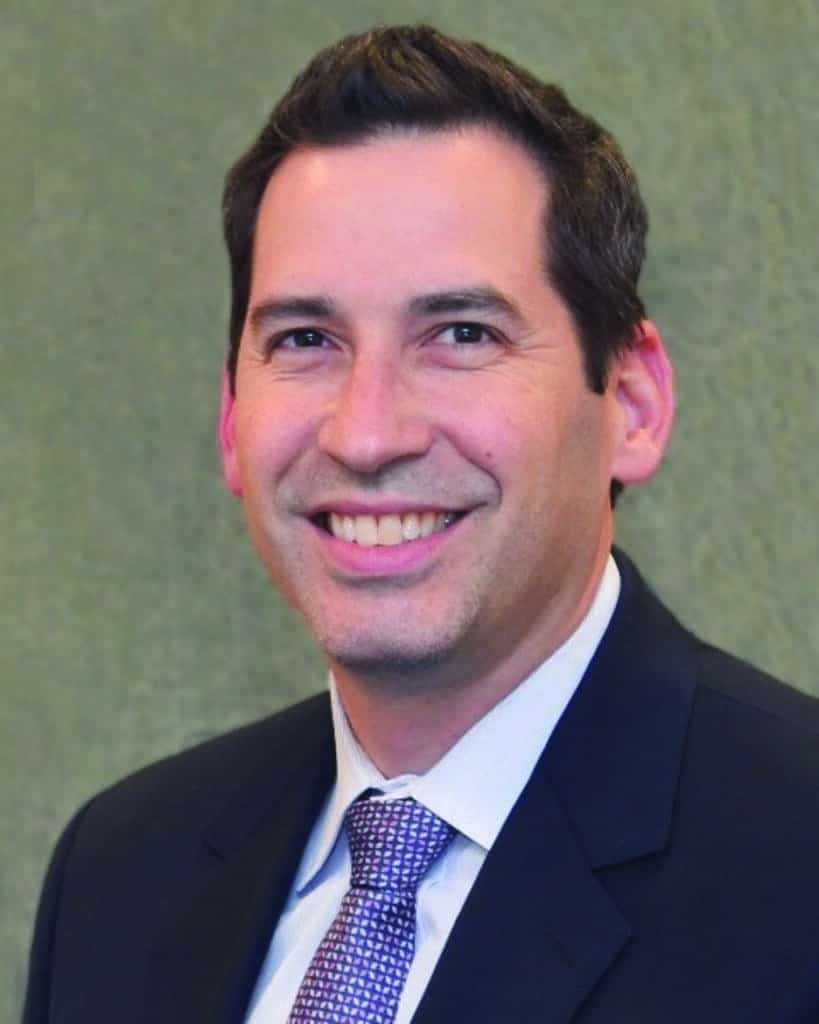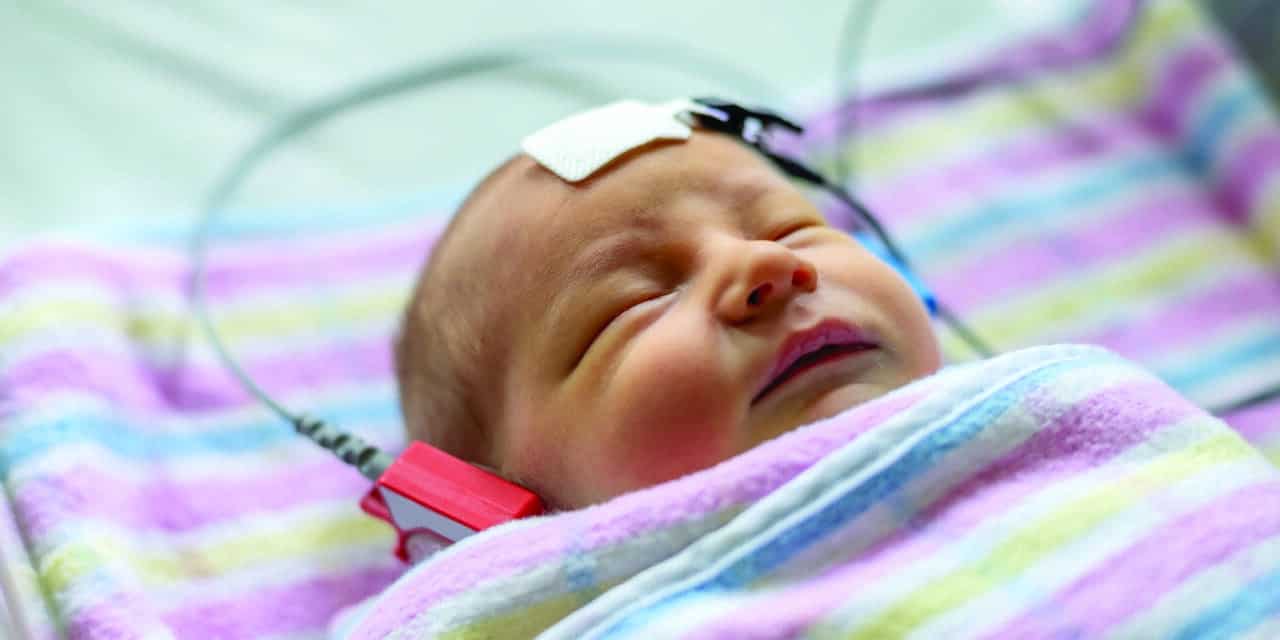Inside the Research | November 2022 Hearing Review
Long-term management of pediatric sensorineural hearing loss
By Kathryn Sutherland
Kathryn Sutherland: Today, I am meeting with otolaryngologist, Dr Michael Cohen. He serves as Director of the Multidisciplinary Pediatric Hearing Loss Clinic as well as Director of the Pediatric Otolaryngology Fellowship at Massachusetts Eye and Ear. He treats children with ear problems such as tumors, infections, and fluid; eardrum perforations; retractions; pediatric cochlear implantation, and sensorineural hearing loss. Today we will discuss the long-term management of pediatric sensorineural hearing loss.
Welcome, Dr Cohen. I am pleased to be speaking with you today.
Dr Michael Cohen: Thank you. It’s great to be here.
Sutherland: Thank you. Please talk about the causes of pediatric sensorineural hearing loss.
Cohen: Well, there are a number of causes of pediatric sensorineural hearing loss, but we can generally classify these into environmental and genetic causes. Genetic causes might be due to an inherited mutation in a gene that can cause hearing loss. These genes may relate to some of the cells that support the inner ear or the cells that actually do detect sound vibrations and convert them into nerve signals to the brain. There are a wide variety of genetic causes of pediatric sensorineural hearing loss, and many of these are able to be tested for quite easily.
There are also a number of environmental causes, which can include viruses, as well as viruses that you might be born with. The most important of which would be congenital cytomegalovirus (CMV). And this is actually a very important cause of hearing loss which is perhaps not as well known as it should be. There’s a lot of effort underway to increase the awareness of congenital cytomegalovirus as a cause of pediatric sensorineural hearing loss.

Sutherland: Why is this such an important issue?
Cohen: Well, hearing loss has a significant effect on the development of a child. We need to be able to hear well in order to develop spoken language and to communicate with others. And, if undetected, hearing loss can cause significant delays in language development and cognitive development.
Sutherland: Are there particular treatments that you can talk about for pediatric sensorineural hearing loss?
Cohen: Yes. There are a number of treatments. And certainly, the treatment would depend upon what the underlying cause of the problem is. For example, in children who have hearing loss due to congenital cytomegalovirus, there are antiviral medications that can be given which can stabilize or even improve hearing loss associated with this virus. It’s important to note that such medicines need to be given very early after a child is born. There are a number of measures underway to mandate universal testing for congenital cytomegalovirus in children whether or not they have evidence of hearing loss on the newborn hearing screening.
Some other ways that we treat hearing loss would include management with hearing aids. Quite a large percentage of children who have hearing loss can be treated with hearing aids and can really get quite a good improvement in their sound awareness and their understanding of speech. So this is an extremely important intervention. There are some children whose hearing loss is so severe that hearing aids are not likely to be effective in giving them adequate access to sound. Many of these children would be candidates for cochlear implantation, which is a device that can directly stimulate the inner ear and the nerve of hearing electrically in order to give sound awareness to children with very severe hearing loss and these technologies continue to improve.
The final thing that I would add is that there are genetic treatments potentially on the horizon for hearing loss. We’re not quite there yet. However, there are a number of companies, and laboratories, and institutions that have been doing research into gene therapy for genetic hearing losses, and it is quite amazing to see how much progress is being made on this front.
Sutherland: There are so many changes in hearing technology, incorporating artificial intelligence, and gene therapy. It is changing the hearing industry as we know it, and very rapidly. Are there any key takeaways that you would like to share with our readers outside of what we’ve talked about so far?
Cohen: Yes. I think the key takeaways are that we have universal newborn hearing screening in this country, which has been in place since the late 1990s. This has dramatically improved our ability to help children that are born with sensorineural hearing loss. By picking up hearing loss at a very early age, we have the opportunity to intervene early, which really allows us to get the best possible outcomes for children with sensorineural hearing loss. So, I’d say the most important message is that sensorineural hearing loss is common in children, but it is also detectable and manageable. These screening tests should be taken seriously so that early intervention can be achieved, and the best outcomes can therefore be achieved for the child.
Sutherland: Can you comment on the referrals between general pediatrics to pediatric otolaryngology. Do you see referrals
increasing?
Cohen: Well, I think there’s long been and great relationship between pediatricians and otolaryngologists when it comes to things like hearing loss. There are some children that are at higher risk, for example, children that are in the NICU or children that have other medical problems. There are many children that don’t pass the newborn hearing screening and have no other apparent health issues. I think a key message is that even though many children who don’t pass the newborn hearing screening end up having normal hearing, quite a large percentage do in fact have permanent hearing loss. It is very important to counsel families that follow-up testing and referral is absolutely critical for any child that does not pass the newborn hearing screening.
Sutherland: Thank you for that. I don’t have any other questions today. Do you have anything else that you would like to share?
Cohen: I really appreciate the opportunity to talk with you and your readers.
Citation for this article: Sutherland K. Interview with Dr Michael Cohen, pediatric otolaryngologist at Massachusetts Eye and Ear. Hearing Review. 2022;29(11):30-31.





